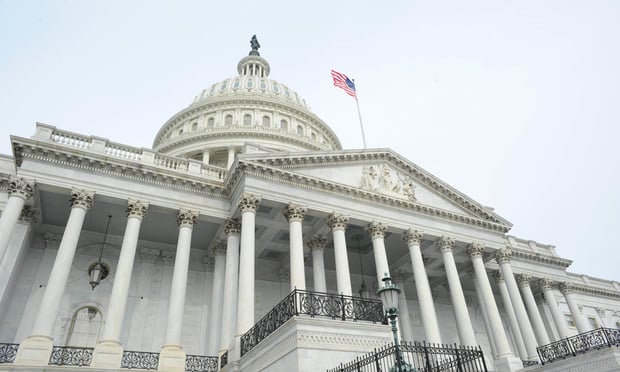Fintech lenders told a House subcommittee Tuesday that the federal government must give them the freedom to innovate, but the president of the American Bankers Association and others said they are concerned that such companies lack sufficient government supervision.
“The difference is oversight,” ABA President Rob Nichols told the House Financial Institutions and Consumer Credit Subcommittee.
Nichols said while banks and other traditional financial institutions are subject to extensive examinations, independent online lenders do not receive the same scrutiny.
The Treasury Department reported in May online lenders that make direct loans to consumers and small businesses may fall through cracks in the federal regulatory scheme and may only be subject to state rules, the Treasury said.
Nichols said that oversight is possible when banks work with online lenders.
“When banks innovate and partner with startups to deliver new technologies their customers win,” he said.
While no credit union witness testified, Brad Thaler, NAFCU's vice president of legislative affairs, wrote the subcommittee a letter calling for closer oversight of fintech companies.
“NAFCU believes that, in addition to modernizing rules, financial regulators must also require online market lenders to meet the basic consumer protection requirements such as the Truth in Lending Act, underwriting standards for loans, and applicable state usury laws, just as credit unions must do now,” Thaler said in the letter.
Nichols also said online lending cannot replace traditional banking.
“It is important to note that while technology can drive innovation and add value, it is not a replacement for a community presence,” he said. “Community banking is a relationship business that is not replicable by technology.”
However, online lenders defended their industry, saying they helped small businesses and others that traditional banks do not reach.
“Traditional lenders have been unable to effectively address the needs of small businesses because of high customer acquisition and underwriting costs, outmoded and cumbersome underwriting methods and overhead costs associated with their brick and mortar branches,” Parris Sanz, chief legal officer at CAN Capital, the largest alternative small business finance company.
He said, for instance, it may be uneconomical for banks and other financial institutions to make business loans of $150,000.
Sanz said the federal government should be sensitive to the risk that additional regulation of nonbank lenders will stifle innovation and competition.
However, Gerron Levi, director of policy and government affairs at the National Community Reinvestment Coalition, delivered an ominous warning about some online lenders.
“We see echoes of the early days of the subprime mortgage boom, in which rapidly growing nonbank mortgage lenders innovated in the worst possible way: By loosening credit standards, layering significant and multiple forms of risk, and causing financial harm to borrowers who could ill afford to repay the loans,” she said.
© 2025 ALM Global, LLC, All Rights Reserved. Request academic re-use from www.copyright.com. All other uses, submit a request to [email protected]. For more information visit Asset & Logo Licensing.







